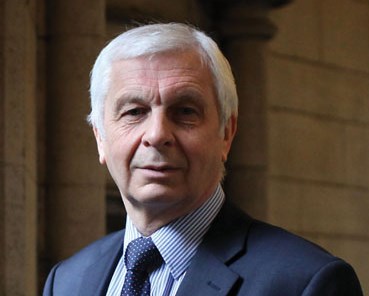Mick Waters: “It’s Time For Leaders To Lead”

True headship is about contributing to the greater good, not the efficient running of a single school – but the DfE doesn’t make it easy, says Mick Waters…

- by Mick Waters

Do school leaders have the authority and autonomy to truly lead their schools? Can they really oversee and drive every aspect of the leadership agenda – from vision creation and strategic planning, to setting team goals and building momentum – thus establishing and celebrating a culture of success?
The role of school leader has been elevated and illuminated in recent years. When it suits them, politicians will proclaim that ‘Heads know best,’ and that leadership should come from within schools. At the same time, ministers set the agenda and demand outcomes, holding school leadership to account.
We have a National College for Teaching & Leadership, leadership conferences, leadership associations and recognition for leaders in our honours system.
Yet so many headteachers suggest their scope for leadership is reduced to the role of product manager within one of the country’s ‘school branches’. Many argue that their scope for pursuing innovation or developing new initiatives is limited, and that their role becomes one of protecting their school community from all manner of external pressures.
A hijacked agenda
System leadership, as we are often told by politicians, should come from schools; a school-led system. It sounds sensible – until we see ministers defining the precise way in which pupils should set out their subtractions, at which point we realise that politicians don’t listen to their own rhetoric.
The proposed College of Teaching (remarkably similar to The College of Teachers that already exists) might be just the vehicle to build professional leadership of the system – though whether ministers will be able to resist the urge to dabble, control and eventually neuter such an organisation is debatable. Witness The National Leadership College, which just a few years ago was a force for good and has since become an administrative arm of the DfE, to the extent that its title is now a misnomer.
School leadership in England is currently driven from two key sources – Ofsted and OECD. The Ofsted inspection is a career changer, so what inspectors look for matters. Sadly, however, Ofsted builds its own evidence base and has frameworks that are constantly being changed, leaving schools in the position of having to continually reassess their priorities.
OECD, on the other hand, produces and analyses PISA tests for politicians to use as ammunition in their quest for power.
These two organisations hijack the agenda, to the extent that schools find themselves doing many things simply because others demand them.
Thought leadership
So how might we reassert the leadership role of headteachers?
First, we should expect genuine leadership, rather than compliance – and acknowledge that school leadership is about more than delivering test results. Next, we should encourage headteachers to work with each other, rather than in competition, to secure the best for all the pupils in their area. There are plenty of examples of alliances, such as the ones in Oldham or the Isle of Wight, where the challenges of the local agenda are being met through sharing expertise, insights and different approaches.
Trending
This leads to the effective use of genuine research. Indeed, good research should promote debate, change practice and measure the success of various strategies from the point of view of learners, institutions and the system itself. This is where true ‘thought leadership’ emerges – and a strong profession would be able to collect these thoughts and turn them into action.
If there were a teaching equivalent of health’s NICE, we might see properly authenticated trials of new techniques and approaches being approved so that they might become expected practice. Then research would have real impact.
The greater good
This is where the role of teaching schools could be truly transformative, taking the profession forward rather than maintaining an ever-narrowing focus on the tried and tested. Hence the need for a College of Teaching with the clout to initiate, organise and influence.
In the end, though, true school leadership for heads comes about when they believe they are part of the profession of ‘headteacher’. This means seeing the items on the nationally-agreed list of professional standards [PDF] as carrying different weight.
Being professional means more than ‘doing a good job’, being efficient and polished. Being professional means offering thought and practice, seeing the role of headteacher as extending beyond one school and contributing to the greater good.
Good headship entails enjoying every moment of being close to children’s learning, helping colleagues and the community to grow and develop as educators – and bringing the wider educational world as close as possible to the star that is your school.
Lead on!
Mick Waters is Professor of Education at the University of Wolverhampton; the issue of school leadership is addressed in his book, Thinking Allowed on Schooling







